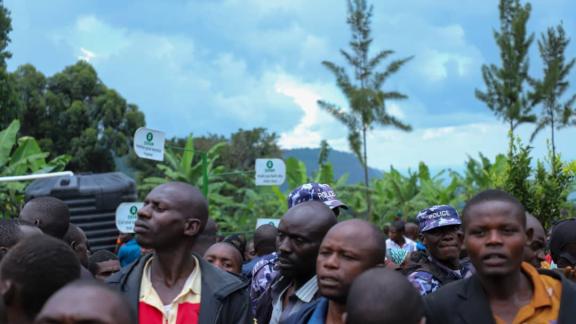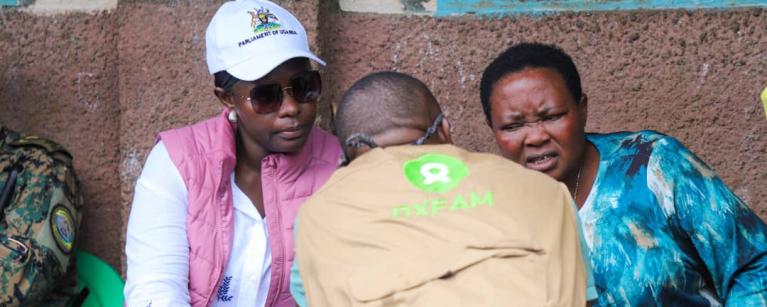On Wednesday, November 27th, a heavy downpour that lasted for over ten hours caused landslides and floods in the Bulambuli district, resulting in the loss of lives and destruction of properties and livelihoods.
The rapid needs assessment conducted by Oxfam in Uganda, in a consortium with the Uganda Red Cross Society, Caritas Tororo, and other actors, with funding from European Civil Protection and Humanitarian Aid Operations (ECHO), Bulambuli District Disaster Management Committee (DDMC), and others, established that the landslides affected 124 households in seven villages: Buluganya, Bumasobo, Soti, Nabiwutulu, Lusha, Bulaago, and Sisiyi.
In Simu, Bukhalu, Bunalwere, Nabongo, Muyembe, Bulegeni, and Buwanyanga sub-counties, floods affected close to 280 households in the villages of Bukhalu, Muyembe, Nabbongo, Simu, Bulegeni, Buyaga, and Bunalwere displacing the communities in these areas.
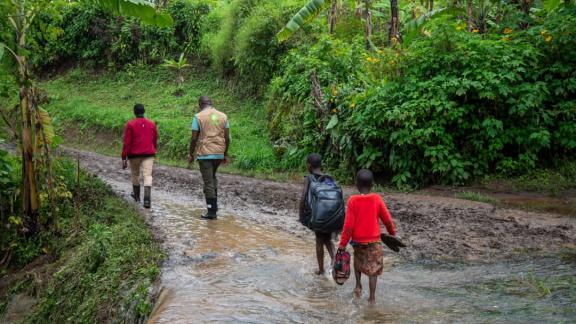
The disasters left devastating impacts on agriculture (gardens, livestock, and crops) and also left houses and property destroyed and washed away.
The disaster significantly impacted health services, with facilities such as Buluganya HCIII and Nabiwutulu suffering adverse damage. Part of Bukyibologoto HCIII was destroyed by the landslide, which also devastated essential WASH infrastructure, including latrines and water sources.
The affected persons were evacuated to Bunambutye Resettlement Centre, following a directive from the Prime Minister of Uganda, Rt Hon Robinah Nabbanja
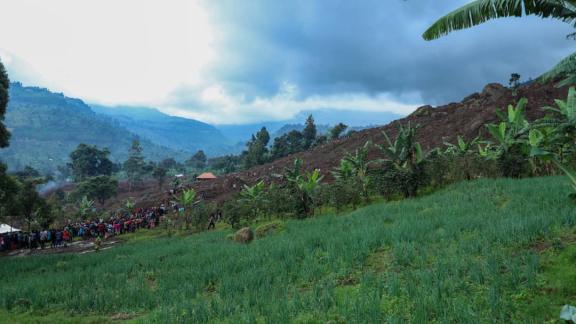
ECHO Funded Consortium Partners Respond
Oxfam in Uganda and partners; Uganda Red Cross Society, Caritas Tororo, with funding from ECHO implementing ‘The Early Warning, Early Action, Strengthening Multi-hazard Disaster Preparedness in the Mt Elgon Sub-region joined the Ministry of Relief, Disaster Preparedness and Refugees, the Office of the Prime Minister (OPM), and DDMCs in response efforts through:
Conducting rapid needs assessment: To determine the extent of the damage of the floods and landslides, Oxfam and partners conducted an assessment that looked at access to dignified sanitary facilities at Muyembe Health Center IV and Bunambutye Resettlement Center, access to safe water, and maintenance of existing Water, Sanitation, and Hygiene (WASH) facilities, social mobilization and among others developed a response budget plan for resource mobilization.
Coordination of response efforts: Oxfam and partners supported developing a disaster response plan and participated in planning meetings with key stakeholders. They were elected into committees like the WASH committee, under which they conducted a WASH needs assessment and presented a plan on how to fill the WASH gaps identified at the resettlement center and health facilities.
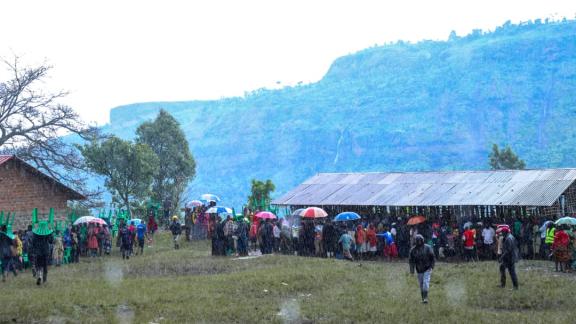
- Crisis Modifier: Following the assessments that also included a market survey, Oxfam and partners also activated the Crisis modifier fund to support the disaster affected populations, where 125 households were supported with WASH items, beddings, food and medical care.
- Community engagement and registration: Oxfam and partners conducted community engagements with affected persons, sharing key health information on sanitation and personal hygiene. They also supported efforts at registering affected persons at Bunambutye Resettlement Center and verifying the same to ensure that the right people were responded to.
